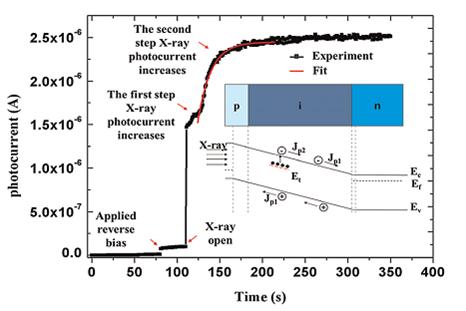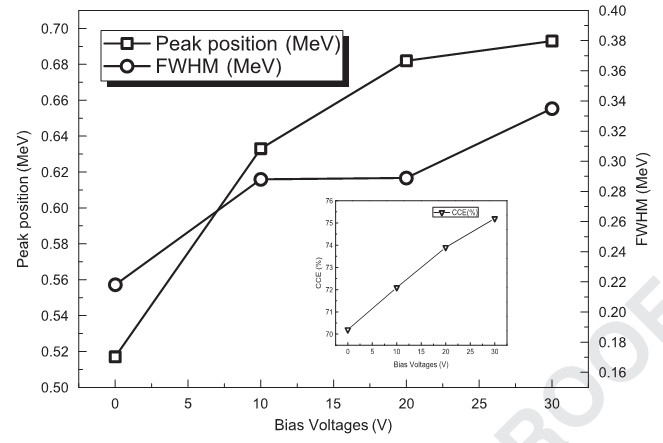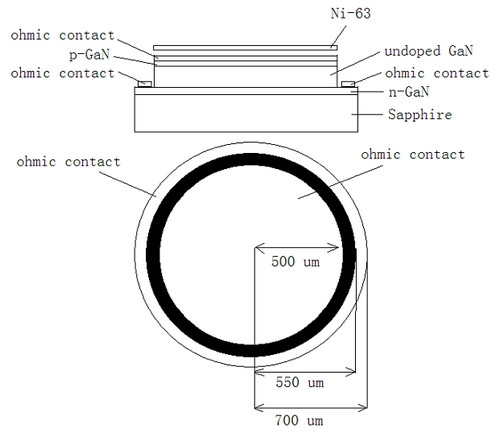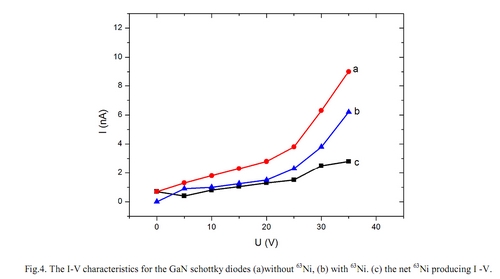Gallium nitride (GaN) is a binary III/V direct band gap semiconductor as a third generation semiconductor material. With the development and improvement of MOCVD technology, GaNis now widely applied in optoelectronic devices, such as light emission diodes (LEDs), laser diodes (LDs) and high electron mobility transistors (HEMTs). Furthermore, GaN not only has excellent potentials in nuclear radiation detection due to its good radiation resistance and environmental stability; but also can be utilized for new nuclear battery because of its higher output power and higher conversion efficiency compared to narrow band gap semiconductor nuclear battery.
Dr. LU Min and his team from Nanofabrication Facility, Suzhou Institute of Nano-Tech and Nano-Bionics, CAS researched theapplication of GaN on substrates of sapphire in nuclear batteries and detectors. A series of advanced progresses have been obtained. GaN-based PIN X-ray detector with a higher X-ray photo current to dark current ratio which is up to 27.7 has been successfully developed. The two-step increase of photocurrent observed in the experiment with X-ray irradiation has been explained, which is caused by two different detection mechanisms: photovoltaic and photoconductive. The research paper has been published in Phys. Status Solidi a (click here to view paper). Besides, GaN-based PIN alpha particle detector’s reverse current is in nA range applied at -30 V and its charge collection efficiency (CCE) is measured to be approximately 80% , which is suitable for detector operation. And the energy resolution has been thoroughly analysed. This work has been published in the journal of Nuclear Instruments and Methods in Physics Research A (click here to view paper). Moreover, there is also a great improvement in Gallium Nitride PIN betavoltaic nuclear batteries. Employing 63Ni as the energy source, the open circuit voltage of the battery is estimated about 0.14 V and the short circuit current density is 89.2nAcm-2. And the conversion efficiency of 1.6% and charge collection efficiency (CCE) of 100% for the battery have been obtained. This work has reported in Advanced Materials Research (click here to view paper). The X-ray detectors, alpha particle detectors and GaN nuclear batteries reported are all innovative research with the international advanced level.
This study is supported by the National Natural Science Foundation of China, the Natural Science Foundation of Jiangsu Province and the Applied Science Foundation of Suzhou.
 |
| Figure 1: X-ray photocurrent-time characteristics and engery-band diagram |
 |
| Figure 2: Dependences of the peak position, full widths at half maximum (FWHM) and charge collcetion efficiency (CCE) on bias voltage |
 |
| Figure3:Schematic crossection and topview diagram of the GB |
 |

